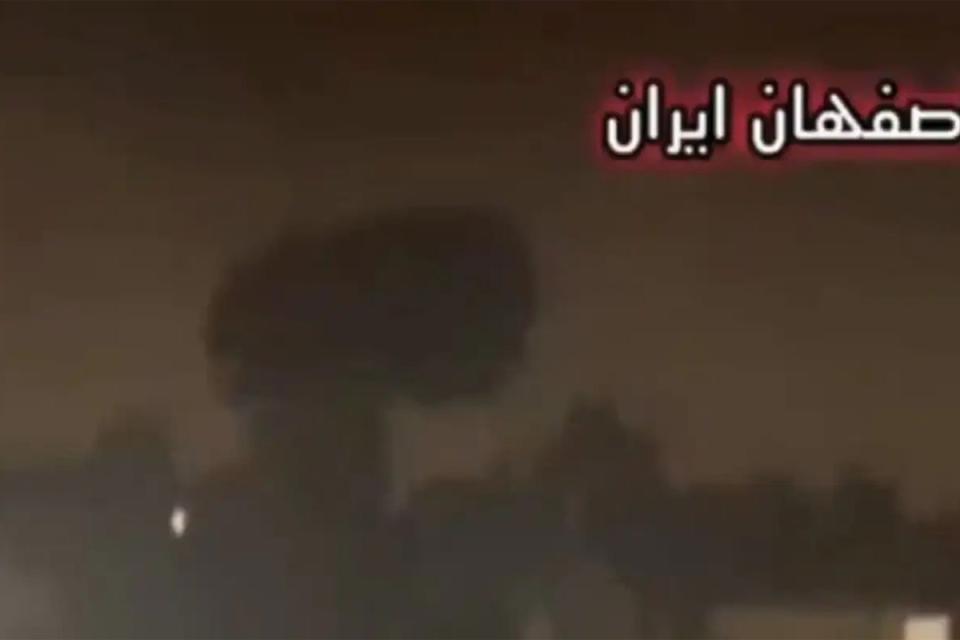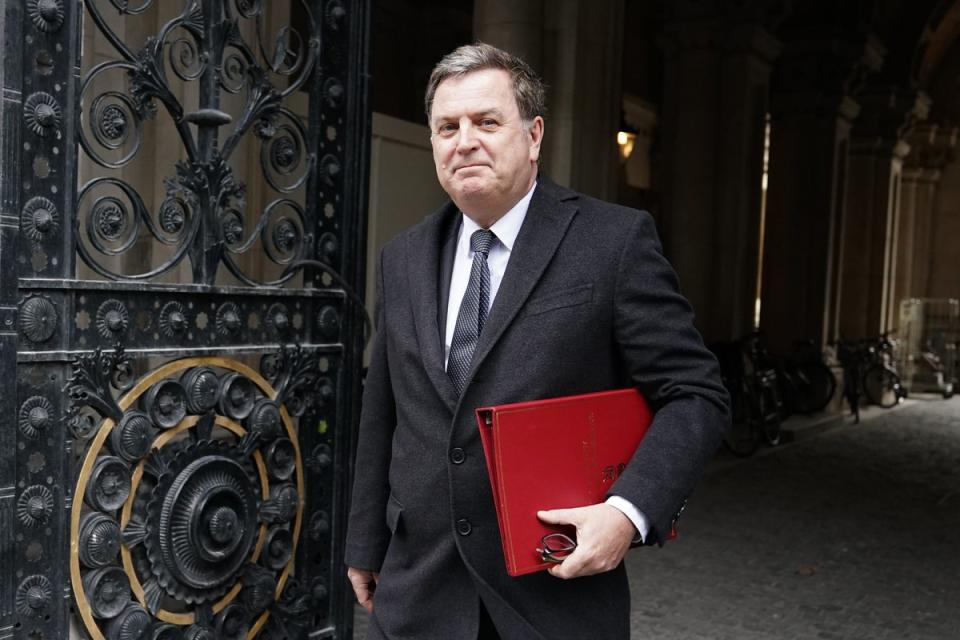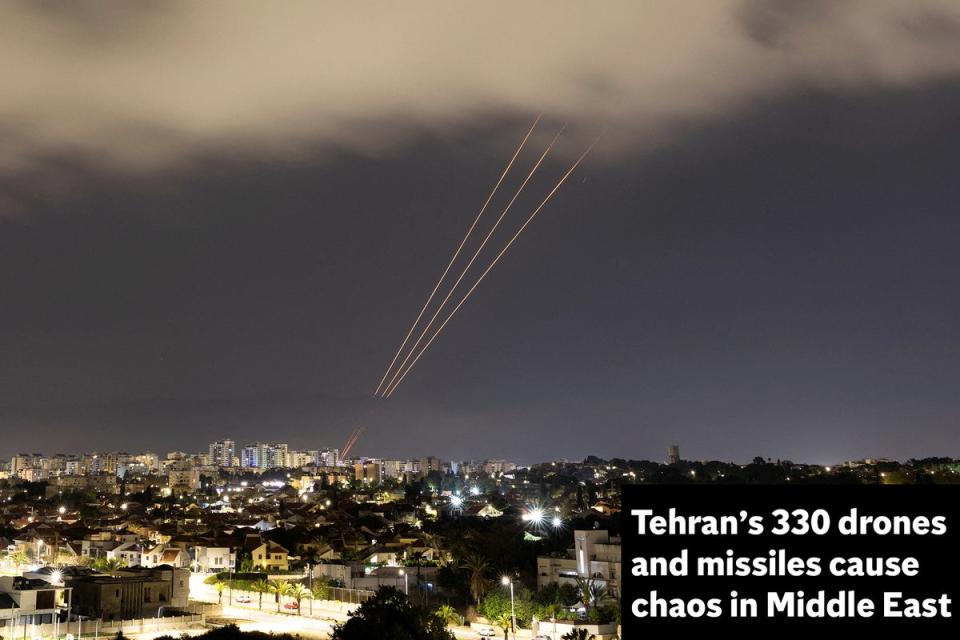Rishi Sunak calls for ‘calm heads’ as Israel launches attack on Iran
Rishi Sunak has called for “calm heads to prevail” as Britain has urged de-escalation following Israel’s retaliatory attack on Iran – with explosions heard near a major military airbase.
While foreign secretary David Cameron met with his G7 counterparts in Italy to discuss easing tensions in the Middle East on Friday, Tehran was forced to activate its air defence system above the city of Isfahan, which is also home to sites associated with Iran’s nuclear programme.
Asked about the emerging reports on Sky News, a government minister said the UK accepts Israel’s “absolute right to defend itself” – but insisted Britain was “very firmly engaged in counselling de-escalation and moderation at this particular moment”.

“We do think that de-escalation is absolutely key now. Our message to all in the region, including Israel, is that de-escalation is really important” said Mel Stride. “The foreign secretary currently is in Italy speaking with his G7 counterparts and they will be focused on exactly that.”
The focus must now be on getting aid into Gaza – on which Britain has made “progress” – and on ceasefires and the release of hostages, said Mr Stride, adding: “So there’s a lot of work to do.”
Speaking later as he announced controversial plans to reform Britain’s welfare system, the prime minister repeated the message he said he had given to his Israeli counterpart last week – that “significant escalation is not in anyone’s interest”.
“What we want to see is calm heads prevail across the region,” said Mr Sunak, who again condemned Iran’s “reckless and dangerous barrage of missiles against Israel on Saturday”.
While the extent of Israel’s new military action remains unclear, it comes despite its allies in Britain, Washington and the G7 urging restraint in the wake of Iran’s unprecedented direct attack.

Hundreds of drones and missiles were launched at Israel on Saturday night in retaliation for an attack on its embassy compound in Damascus, which killed several senior Iranian military commanders. Israel insisted it shot down “99 per cent” of the missiles, with the help of Britain, France, the US and regional allies.
Asked about Friday’s attack, the UK’s former Lebanese ambassador Tom Fletcher told the BBC: “Clearly the picture is still quite hazy, everyone will have an interest in it remaining hazy for some time while they work out how they want to describe what happened overnight, because in a way the reaction to it is as important as the event itself.
“Across the region people I’m hearing from are braced, many are waking up with real fear. Isfahan is a serious nuclear site, and this is a sign that Israel does intend to continue this game of high-stakes poker with Iran.”

“We don’t know how much of an escalation this is for now,” he added. “Clearly Iran is starting to signal that it’s not necessarily a major escalation, they’re playing it down. And of course Israel could have chosen to do something more dramatic. “
Diplomats across the region “will all be looking to find ways to play it down now” and “messages into Tel Aviv and Tehran will all be clear and consistent that: ‘this is enough’”, said Mr Fletcher, a former foreign affairs adviser to prime ministers Gordon Brown and David Cameron.


